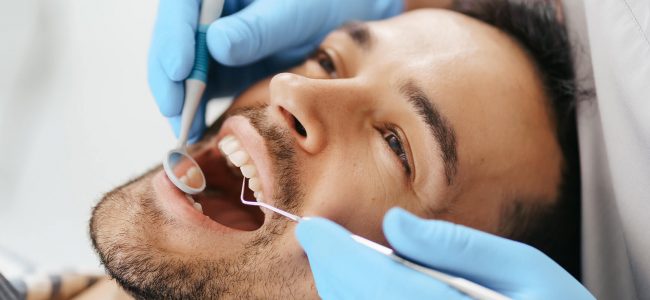When a dental emergency happens, it can be very frightening. Knowing what to do in case of an emergency can improve your outcome. In this blog post, we’ll walk you through the steps to take if you ever experience an emergency dental issue.
Preventing Dental Problems
Some dental emergencies are all but unavoidable, but some can be prevented or identified and corrected earlier through routine oral care. Brushing and flossing twice a day and seeing your dentist for a routine exam and cleaning at least twice a year can reduce the likelihood that you’ll need emergency dental treatment.
Identifying a Dental Emergency
It can be hard to tell the difference between a dental problem that can wait and an emergency that requires immediate medical attention. Some of the most common causes of dental emergencies include car accidents, bad falls, playing sports, and serious infection.
Problems that can typically wait until your dentist’s next available appointment include a filling that has come loose, a broken orthodontic bracket or wire, a toothache, a bridge or crown that has fallen off, or a chipped tooth.
Serious injuries, a bad toothache that can’t be managed with over-the-counter pain relievers, a tooth abscess, or a knocked-out tooth or teeth usually require emergency medical attention.
How to Handle a Knocked-Out Tooth
If you’ve lost a tooth after trauma, there are specific steps you should take before heading to the dentist that can help preserve your tooth and improve the likelihood of saving your tooth or teeth.
First, locate the tooth and put it in a container with milk. Then, pack a tea bag or gauze into the socket where that tooth came from. If you can’t locate the missing tooth, it’s still important to pack the socket to help control bleeding.
What to do in Case of an Emergency
Contact your dentist’s office as soon as you experience a dental emergency; leaving a serious problem untreated can lead to tooth loss and other complications. Your dentist’s office will let you know if your problem can wait or not and where you should seek care.
Schedule Your Appointment
To learn more or get started with routine dental care, contact your local Ideal Dental office to schedule an appointment today.
